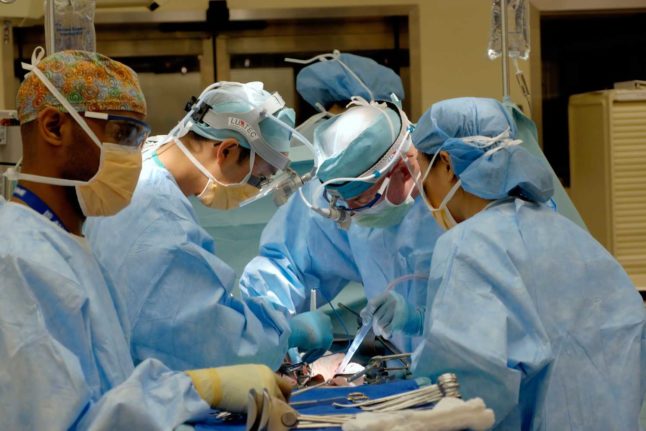In the second of four rounds of national referendums scheduled for 2022, the Swiss will go to the polls on May 15 to decide on three issues, including one that would, if passed, improve people’s chances of receiving a donor organ in Switzerland.
The proposal changes the existing law in favour of ‘presumed consent’ for organ donation.
At least this is what the Federal Council and the Parliament claim in their support of the transplant /organ donation law.
This is what’s at stake
As elsewhere, the number of people needing transplants in Switzerland far exceeds the number of available organs.
According to data from Swisstransplant, an organisation mandated by the Federal Office of Public Health (FOPH) to maintain the waiting list of organ recipients and to allocate the organs as they become available, 1462 patients are still waiting for at least one organ. Only 587 people were able to receive transplants, while 72 died while waiting for organs to become available.
As the law stands today, “a transplant is only possible if the deceased person has consented to the donation during his or her lifetime”, the Federal Council explains on its website.
“However, the wish of the person concerned is often unknown. It is then up to the relatives to decide. In the majority of cases, they are against organ donation”.
What is the government proposing?
To increase patients’ chances of receiving an organ, the Federal Council and the Parliament want to amend this legislation to allow collection of organs from any deceased person who did not make their opposition to being a donor known during their lifetime.
“If a person has not objected, it is assumed that they are willing to donate their organs”, authorities said.
READ MORE: How Switzerland’s direct democracy system works
In other words, anyone who does not wish to donate their organs after their death will now have to indicate this explicitly.
Nevertheless, under the proposed law, the relatives of the deceased can refuse organ donation “if they know or suspect that the person concerned would have chosen not to do so. If no relatives can be contacted, no organs may be removed”.
Who is against this law?
A committee composed of various political parties and religious groups argues that “a conscious and clear ‘yes’ is necessary for any medical intervention. It is inadmissible that this explicit yes is no longer necessary for organ donation”.
Organ donations are only ethically justifiable if the person concerned has given his or her explicit consent during his lifetime, the committee added.
What are the chances of the proposed law to be approved by voters?
According to the latest poll, which Switzerland’s largest media group, Tamedia, released on Wednesday, 61 percent of survey participants said they would approve the law, while 37 percent would reject it.
Those in favour “believe that sick people would have a better chance of receiving a healthy organ, because the principle of presumed consent would make it possible to increase the number of donors”, Tamedia said.
Opponents, on the other hand, “argue that actively undermining bodily integrity is unethical and even unconstitutional”.
What else will the Swiss vote on May 15th?
The two other issues on the ballot are The Film Act (dubbed ‘Lex Netflix), as well as support for European border guards (Frontex).
You can read about them here:
What is the ‘Netflix vote’ and how could it change TV in Switzerland?
Frontex: How Switzerland’s ‘border vote’ on May 15th could impact travel



 Please whitelist us to continue reading.
Please whitelist us to continue reading.
Member comments